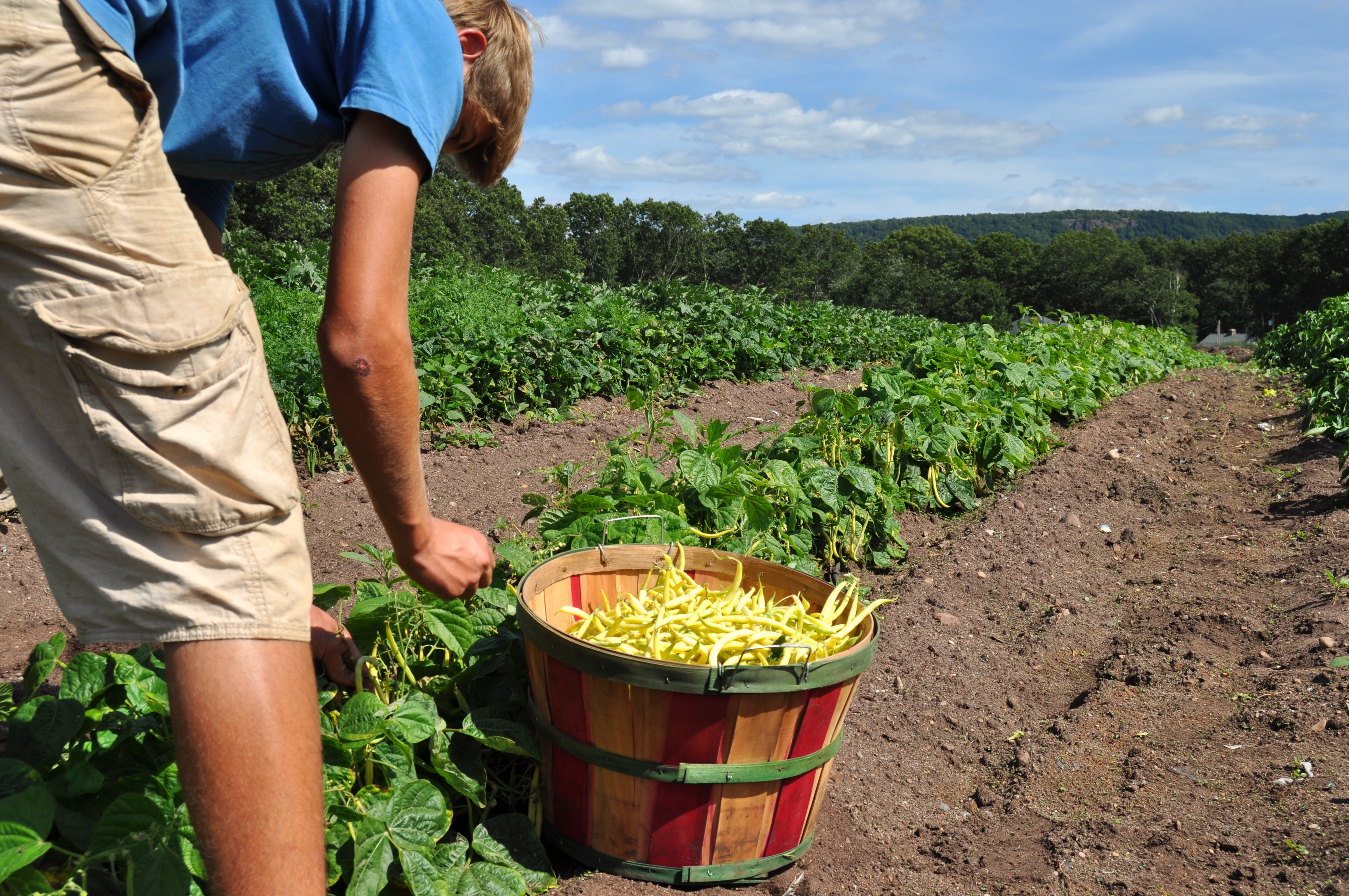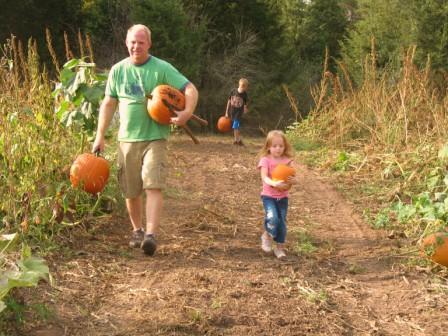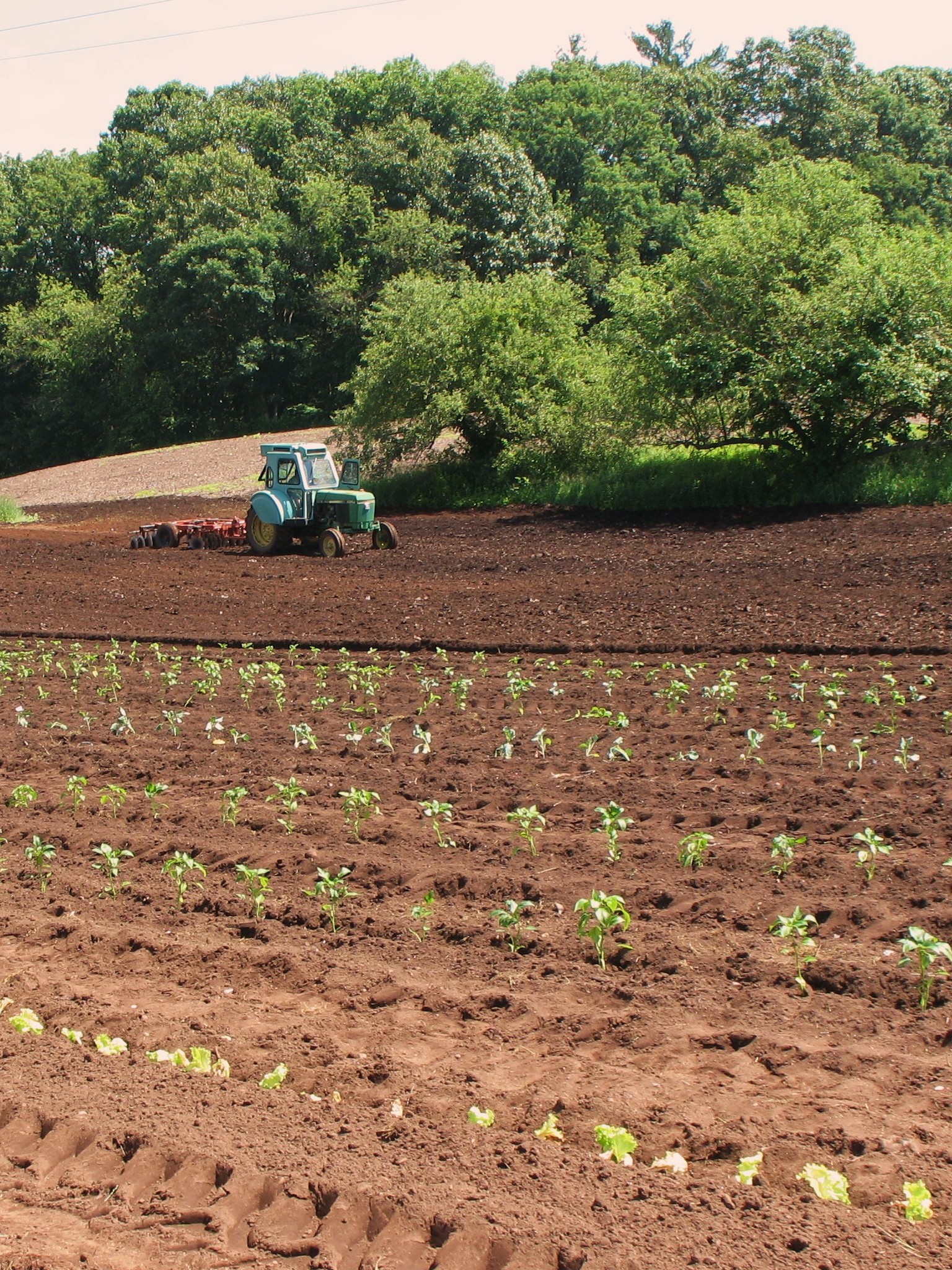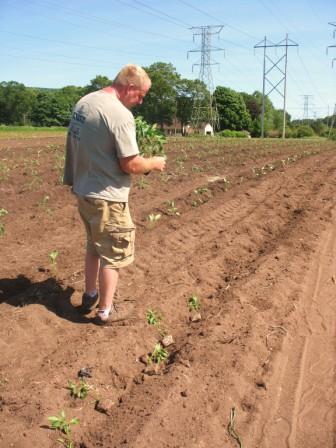Leaf Growing Practices
200 Varieties of the Freshest Vegetables Grown in CT
We feel it is our responsibility to utilize good safe farming practices and insure that products produced here have little to no impact to the environment or consumer. Rather than fighting against Mother Nature, our methods of growing work in harmony with nature to produce nutrient -rich, delicious fresh produce
The practice of improving soil quality is one of the most important goals in a sustainable farming system, which in turn leads to a productive agricultural landscape. Over the past 25 years the Lewis family has been adding and tilling in decomposed leaf mulch (from the leaf collection program in Southington) and lime into the soil of our vegetable fields. This has built up the organic matter in the soil, enabling the vegetable plants to grow easier and faster. Adding the organic matter to the soil has helped plants in other ways, reducing soil compaction and adding vital nutrients and minerals to the soil which has reduced the amount of fertilizer used for vegetable production. Our soil now has better water retention that reduces the stress on the plants by making water more readily available. The amount of soil erosion and run off has decreased due to the ability of the soil to hold and retain water. The nutrients in our food come directly from the soil. If the soil has no nutrients, then the food has no nutrients and will not grow. We believe that growing the soil is just as important as growing our produce and insuring its fertility for future generations.
Keeping our vegetable fields free from weeds is another example of the good farming practices used at the L.E.A.F.. We accomplish this is by cultivating and hand hoeing the fields and by the laying of black plastic mulch in rows thus preventing the weeds from growing. Being weed free decreases the number of crop damaging insects. Fewer weeds also result in increased air flow in the fields which helps to cut down on the amount of mildews and molds that might be seen on crops during wet periods.
Integrated Pest Management or I.P.M. is also one of the key components of our good farming practices program. I.P.M. means we go into our vegetable fields and scout for potentially harmful pests. When a pest has reached a certain level that may cause harm to the crop, we will then determine what the safest method will be. Some of the first controls we use are: hand eradication of larger insects, the releasing of predator insects which will feed on crop damaging insects, and the use of natural sprays, such as copper and zinc. We use no synthetic or toxic products to eradicate pests, weeds or diseases.
Crop rotation is another effective way of helping to prevent last year's pests from damaging this year's crop. The rotation of crops helps to prevent the plants from depleting minerals from the soil year after year.
The L.E.A.F. is committed to producing the freshest, safest, best tasting produce while being conscientious stewards of the land. We emphasize education to enhance our community's knowledge of agricultural stewardship and the important role it plays in all of our lives.



The Lewis Family Philosophy
